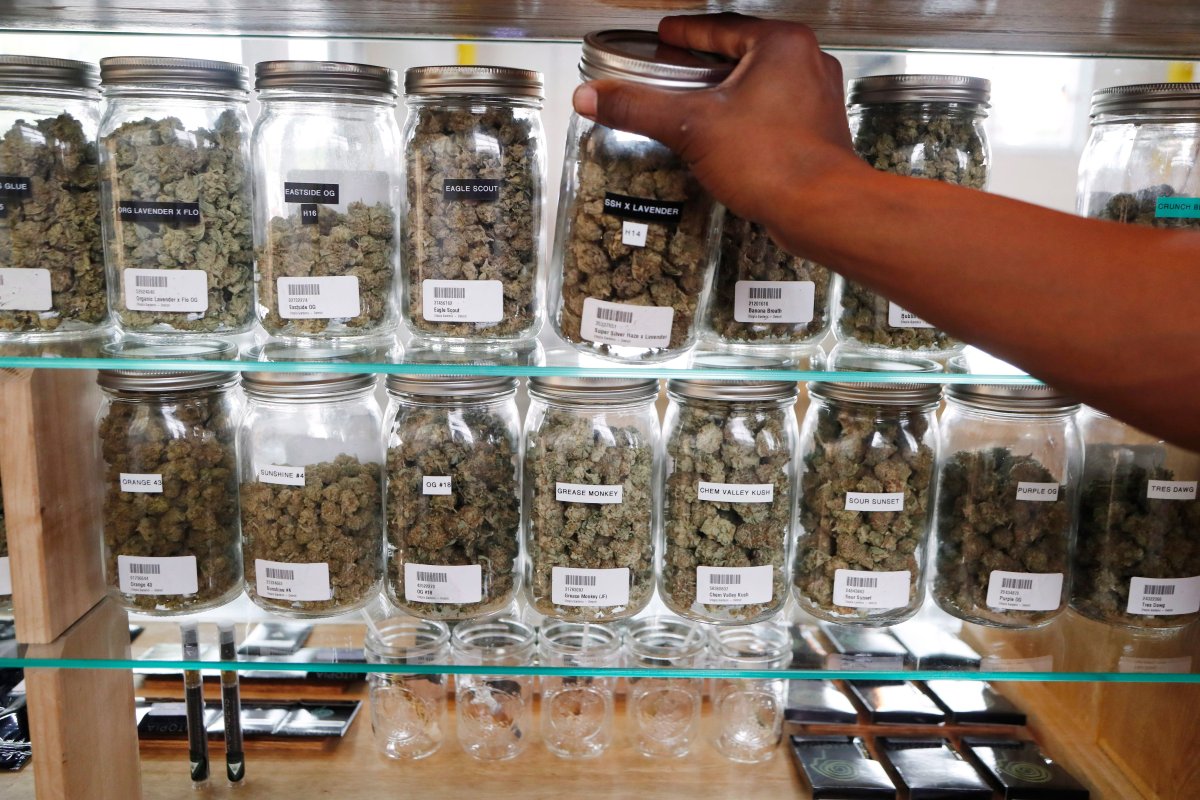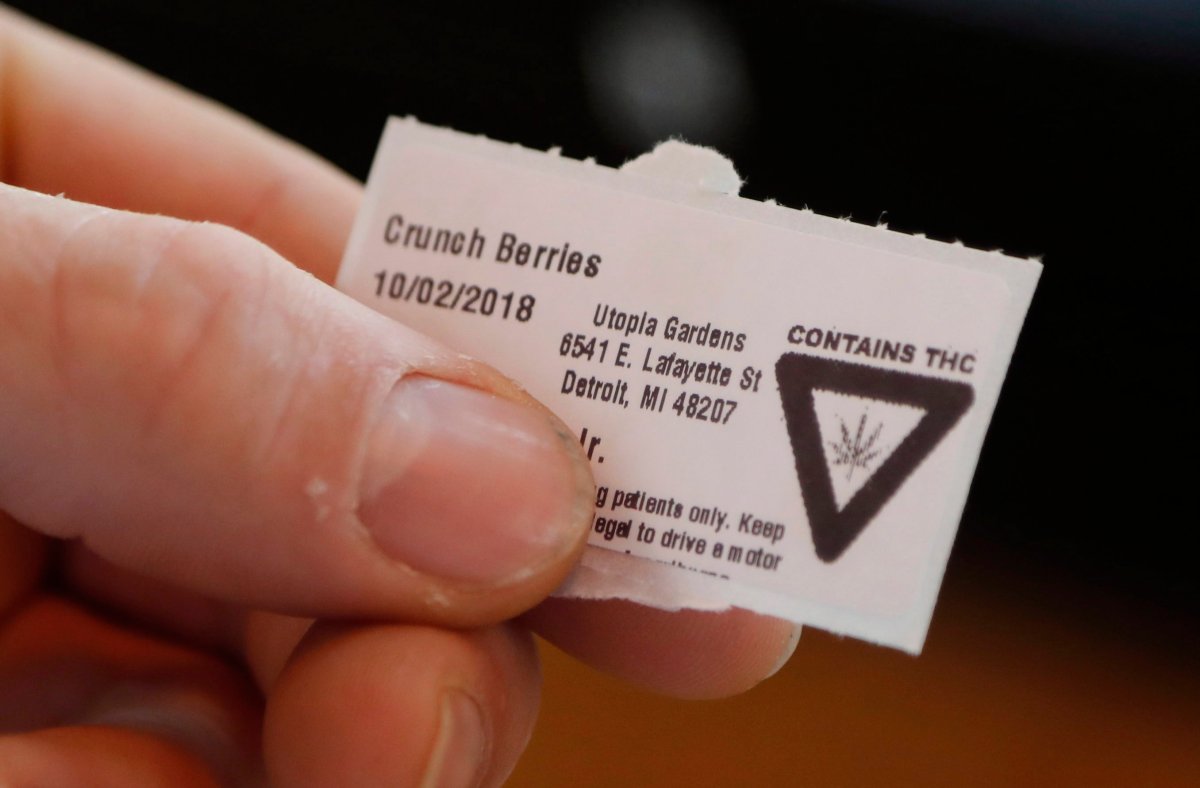Voters in Michigan were deciding Tuesday whether to legalize recreational marijuana, which would make theirs the first state in the Midwest to do so and would put conservative neighboring states on notice.

The Associated Press hadn’t called the Michigan race as of early Wednesday, but the primary opposition group to the marijuana ballot measure conceded defeat. Healthy and Productive Michigan said in a statement Tuesday night that it’s side lost and that “the level of responsibility … now rests on the shoulders of those who have voted Yes.”
Coverage of the U.S. midterm elections on Globalnews.ca:
Three other states also had marijuana measures on their ballots. North Dakota voters decided that recreational pot wasn’t for them, while voters in Missouri opted to legalize medical marijuana. Utah voters also were considering whether to allow medical marijuana, as more than 30 other states have already done.
Nine states and the District of Columbia had already legalized recreational pot for people age 21 or older prior to Tuesday’s midterm election. And Canada, which shares a border with Michigan and North Dakota, recently made it legal for adults to use the drug.
But passage of the measures in either state, which both have Republican governors and Republican-controlled legislatures, would give it a foothold in Middle America and could cause tension along their state borders.

Get daily National news
“Troopers that work along the state line are very cognizant of what’s going on up north,” said Indiana State Police Sgt. Ron Galaviz, a spokesman for the agency’s Fort Wayne Post, which stretches north to the Michigan line.
He said if the referendum passes, “we know some of our citizens are going to go over to Michigan to partake.” And those who return either under the influence or in possession of pot may learn the hard way that it remains illegal in Indiana and Ohio, which overwhelmingly rejected a 2015 legalization measure.
“We’ll enforce our laws as written,” added Galaviz, a Michigan native. “If you’re traveling to or through our state, we really don’t want you bringing it down here.”
Such warnings might be warranted. Surveys show the Michigan public’s receptiveness to marijuana legalization is similar to attitudes nationwide, with recent Gallup and the Pew Research Center polls showing it had the support of more than 60 percent of respondents.
READ MORE: Midterm ballot questions on marijuana, abortion and fracking could reshape state laws
Kristin Schrader, 51, a Democrat from Superior Township in Washtenaw County, said she voted to legalize marijuana because she doesn’t want people leaving Michigan to get it.
“I’ve got no attachment to marijuana myself, but I don’t care to stand in the way of the train while it’s coming down the tracks. I don’t want people to go to other states to get it and spend their money somewhere else. If there’s going to be an economic benefit to legalize marijuana, I want it to be in Michigan.”
Supporting the measure is the Coalition to Regulate Marijuana Like Alcohol, which has been endorsed by a national organization of black-owned businesses and a group of retired Michigan law enforcement officers. Opposing it is Healthy and Productive Michigan and many law enforcement agencies, prosecutors, chambers of commerce and religious groups.
Unlike Michigan’s measure, North Dakota’s didn’t receive any significant funding from outside groups and voters rejected it on Tuesday. It came as the state was still setting up its medical marijuana system, which voters approved by a wide margin two years ago.
The Michigan measure would create a state licensing system for marijuana business and allow cities and townships to restrict them.
Supporters say it would align with the state’s new regulatory system for medical marijuana businesses and raise roughly $130 million in additional tax revenue each year that would go toward road repairs, schools and local governments. They also say it would allow for greater regulation of pot usage and for the police to focus on more pressing problems.
Opponents say legalizing marijuana would lead to increased use by children, drug abuse and car crashes. They say Michigan’s proposal would be too permissive by allowing people to have up to 2.5 ounces (71 grams) of the drug on them and up to 10 ounces (284 grams) at home. They also say its 16 percent tax rate is too low.
Voters in Missouri passed one of three medical marijuana measures on their ballot. In conservative Utah, the Mormon church opposed the medical marijuana proposal but recently joined lawmakers and advocates to back a deal that would legalize it in the state. Utah’s governor said he would call lawmakers into a special session after the election to pass the deal into law, even if the initiative fails.
- Michael Kovrig reflects on ‘brutally hard’ Chinese detention: ‘You’re totally alone’
- U.S. moves to ban Chinese software, hardware from all vehicles in America
- After controversial directive, Quebec now says anglophones have right to English health services
- Something’s fishy: 1 in 5 seafood products are mislabelled, study finds














Comments